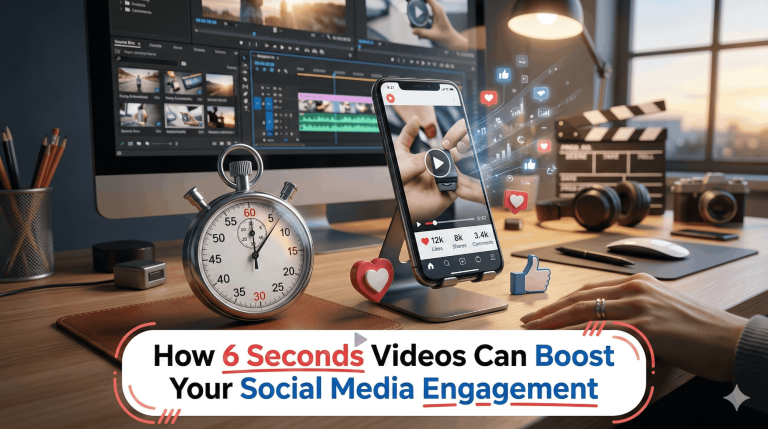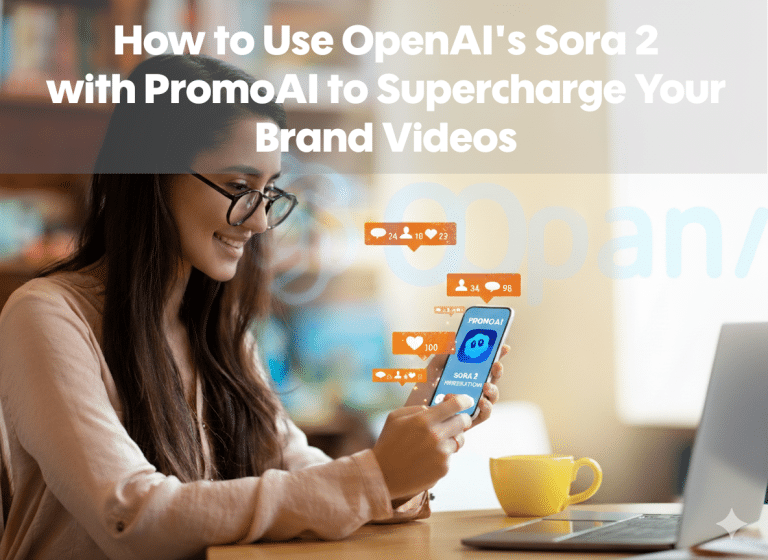
Getting Leads: Lead Generation 101
Lead generation is a strategic process that holds immense potential for small businesses, offering a pathway to sustainable growth, increased sales, and lasting customer relationships. However, for small enterprises operating with limited resources, navigating the challenges of lead generation can be daunting.
In this blog post, we delve into the world of lead generation, exploring its benefits, how it works, and common challenges and solutions.
What Is Lead Generation?
Lead generation is the strategic process of identifying and attracting potential customers or “leads” with the goal of converting them into paying customers. It’s a fundamental aspect of modern marketing that focuses on initiating and cultivating consumer interest in a product or service. The objective is to create a pipeline of individuals who have expressed interest in your business’s offerings, transforming them from mere prospects into valuable customers.
At its core, lead generation revolves around understanding and connecting with the target audience. It involves deploying various marketing tactics and channels to capture the attention of individuals who are likely to have an interest in a particular product or service. These tactics can include:
- Content marketing
- Social media engagement
- Search engine optimization
- Other strategies tailored to the preferences and behaviors of the target demographic
One of the key components of lead generation is the capture of information that allows businesses to identify and categorize potential leads. This information often includes:
- Contact details
- Demographic data
- Insights into the individual’s preferences or behaviors
Businesses use this data to personalize their interactions with leads, providing relevant information and nurturing them through the sales funnel.
Lead generation is a dynamic and iterative process. It involves constant analysis and refinement of strategies based on the performance of various campaigns and the evolving needs of the target audience. The ultimate aim is to move leads from the awareness stage, where they first become aware of a business, through the consideration stage, where they actively evaluate products or services, and finally into the decision stage, where they make a purchase.
Why Lead Generation Is Important for Small Businesses
Lead generation can significantly impact a business’s growth, revenue, and overall success. Let’s look at some of the benefits of lead generation, particularly for smaller businesses.
Business Growth
For small businesses, the pursuit of growth is an ongoing journey, and lead generation serves as a vital catalyst. By generating a steady stream of potential customers, small businesses create a pipeline for expansion. The influx of leads provides opportunities to explore new markets, diversify product offerings, and ultimately scale the business.
In essence, lead generation acts as a fuel for the growth engine, allowing small businesses to reach beyond their current customer base and tap into untapped markets. The continuous influx of leads ensures a pool of prospects from which the business can strategically select and nurture for future growth.
Increased Sales Opportunities
At the heart of lead generation lies the conversion of potential customers into paying ones. Small businesses face the challenge of maximizing every sales opportunity, and lead generation addresses this challenge by creating a pool of leads ready for nurturing. These leads, having expressed interest in the products or services offered, represent a fertile ground for conversion into sales.
By implementing targeted and personalized marketing strategies, small businesses can nurture leads through the sales funnel, providing valuable information, addressing concerns, and ultimately guiding them toward a purchase decision. The result is an increased number of sales opportunities that contribute directly to revenue growth.
Cost-Effective Marketing
Small businesses often operate with limited resources, making the allocation of marketing budgets a critical decision. Lead generation shines as a cost-effective marketing strategy in comparison to traditional advertising methods. Rather than casting a wide net and hoping for results, lead generation allows businesses to focus their efforts and resources on attracting individuals who have already shown interest in their offerings.
The cost-effectiveness of lead generation is amplified by the ability to track and measure the performance of campaigns. This data-driven approach enables small businesses to optimize their marketing spend, ensuring that every dollar invested contributes to tangible results. In essence, lead generation allows small businesses to do more with less, maximizing the impact of their marketing efforts.
Targeted Marketing
Understanding and reaching the right audience is a challenge for businesses of all sizes, but it holds particular significance for small enterprises with limited resources. Lead generation addresses this challenge by enabling businesses to tailor their marketing efforts with precision. By creating detailed buyer personas and identifying the characteristics of their ideal customers, small businesses can direct their messages to the audience most likely to convert into customers.
This targeted approach not only increases the relevance of marketing messages but also enhances the efficiency of marketing campaigns. Small businesses can avoid the scattergun approach of broad advertising and focus on engaging with individuals who are more likely to resonate with their products or services.
Building Customer Relationships
Beyond the immediate goal of converting leads into customers, lead generation plays a pivotal role in building lasting relationships. Small businesses thrive on the trust and loyalty of their customer base, and lead generation facilitates the initial steps in this relationship-building process.
Through strategic communication, personalized interactions, and the delivery of valuable content, small businesses can establish a connection with potential customers. This early engagement lays the foundation for trust and loyalty, essential elements for the sustained success of any small business. As leads progress through the sales funnel, the relationships established during the lead generation phase contribute to long-term customer satisfaction and retention.
How Lead Generation Works
So how does this incredibly effective and valuable process work, anyway? Lead generation involves a series of strategic steps to attract potential customers, nurture relationships, and ultimately convert leads into loyal clients.
Attracting Attention
The first step in lead generation is capturing the attention of the target audience. This involves deploying various marketing channels and tactics to create awareness about a product or service. Content marketing, social media engagement, and search engine optimization are commonly used methods to attract individuals who may have an interest in what a business has to offer.
The goal is to stand out in a crowded marketplace and make a memorable impression that compels potential leads to explore further. Compelling visuals, engaging content, and targeted messaging play pivotal roles in this stage, setting the foundation for subsequent interactions.
Offering Value
To capture and maintain the interest of potential leads, businesses must offer genuine value. This can take the form of informative blog posts, educational resources, or exclusive insights that address the needs and concerns of the target audience. By providing valuable content, businesses establish themselves as authorities in their industry, building trust with potential leads.
Capturing Information
Once attention is secured and value is established, the next step is to capture essential information about potential leads. This often involves enticing individuals to provide their contact details through forms on websites, landing pages, or other touchpoints. The information collected allows businesses to personalize their interactions and tailor their approach to the specific needs and preferences of each lead.
Lead Magnets
Lead magnets are incentives that businesses offer to potential leads in exchange for their contact information. These incentives can include:
- Ebooks
- Whitepapers
- Webinars
- Exclusive access to special promotions
By creating compelling lead magnets, businesses enhance their ability to capture valuable information and initiate the relationship-building process.
Nurturing Relationships
Lead generation extends beyond capturing contact information; it involves building relationships with potential customers. Through targeted email campaigns, personalized content, and strategic communication, businesses nurture leads through the sales funnel. The goal is to keep leads engaged, providing them with the information and support they need as they move closer to making a purchase decision.
Understanding Needs
Successful lead generation requires a deep understanding of the needs, preferences, and pain points of potential customers. By analyzing data, monitoring interactions, and actively seeking feedback, businesses can tailor their approach to address the unique needs of each lead. This understanding is crucial for delivering relevant and timely content that resonates with the audience.
Conversion Opportunities
As leads progress through the sales funnel, businesses identify key moments when conversion opportunities arise. These opportunities may manifest as specific actions taken by the lead, such as downloading a product brochure, attending a webinar, or requesting a demo. Recognizing and capitalizing on these opportunities is essential for guiding leads toward the decision-making phase.
Sales Handover
When a lead demonstrates a high level of interest and engagement, it’s time for the sales handover. This transition involves passing the lead from the marketing team to the sales team. The information collected during the lead generation phase equips the sales team with valuable insights, enabling them to tailor their approach and effectively guide the lead towards a purchase.
Closing the Sale
The culmination of the lead generation process is the successful conversion of a lead into a customer. By leveraging the relationships built, understanding individual needs, and strategically guiding leads through the sales process, businesses can confidently close deals and foster long-term customer loyalty.
Challenges of Lead Generation for Small Businesses
Lead generation, while essential for business growth, poses distinct challenges for small businesses operating with limited resources and competing in dynamic markets. Overcoming these hurdles requires strategic planning, creativity, and a deep understanding of the target audience.
Let’s explore some of the challenges you might come up against when trying out lead generation.
Limited Resources
One of the primary challenges faced by small businesses in lead generation is the constraint of limited resources. Unlike larger enterprises with expansive marketing budgets, small businesses often struggle to allocate sufficient funds and manpower to comprehensive lead generation campaigns. This limitation can hinder the deployment of diverse marketing channels and the creation of compelling content, impacting the overall effectiveness of lead generation efforts.
The solution: To address this challenge, small businesses must prioritize and focus on cost-effective strategies that align with their specific goals. Ways to make the most of limited resources include:
- Leveraging digital platforms
- Optimizing social media channels
- Exploring collaboration opportunities within the business community
- Using advanced technology like PromoAI for more efficiency processes
Competition with Larger Companies
Small businesses often find themselves competing with larger, more established companies for the attention of potential leads. The sheer scale and visibility of larger competitors can make it challenging for smaller entities to stand out in the crowded marketplace. Overcoming this challenge requires a strategic approach that emphasizes the unique value proposition, personalized service, and agility that small businesses can offer.
The solution: Building a niche market presence and emphasizing the advantages of a more personalized customer experience can help small businesses differentiate themselves from larger competitors. Additionally, identifying specific target segments and tailoring marketing messages to address their distinct needs can create a competitive edge.
Lack of Data and Analytics
Effective lead generation relies heavily on data and analytics to understand customer behavior, track campaign performance, and refine strategies. Small businesses often face challenges in collecting and analyzing sufficient data due to limited tools and resources. This lack of insights can hinder the ability to make informed decisions and optimize lead generation efforts.
The solution: To overcome this challenge, small businesses should prioritize investing in affordable yet robust analytics tools. Leveraging customer relationship management (CRM) systems and analytics platforms can provide valuable data insights, enabling businesses to refine their targeting strategies, personalize communications, and measure the success of lead generation campaigns.
Building Trust and Credibility
Establishing trust and credibility is a critical aspect of successful lead generation. Small businesses may face skepticism from potential leads who are unfamiliar with the brand or concerned about the business’s stability. Building trust requires consistent messaging, transparent communication, and the demonstration of expertise in the industry.
The solution: Small businesses can address this challenge by:
- Focusing on building relationships within their local communities
- Leveraging customer testimonials
- Showcasing industry expertise through thought leadership content
- Aiming for authenticity and transparency in marketing messages
Effective Content Creation
Creating compelling and relevant content is a challenge for small businesses engaged in lead generation. Developing high-quality content that resonates with the target audience requires time, creativity, and often specialized skills. Small businesses may struggle to consistently produce engaging content that captures the attention of potential leads.
The solution: To overcome this challenge, small businesses can:
- Use AI content creation tools like PromoAI
- Explore user-generated content
- Collaborate with local influencers
- Repurpose existing content to maximize its impact
- Outsource content creation
Measuring Return on Investment (ROI)
Measuring the return on investment (ROI) for lead generation efforts is a common challenge for small businesses, particularly when faced with limited tracking capabilities and analytical tools. Determining the success of specific campaigns and understanding which channels deliver the best results can be elusive without proper measurement mechanisms.
The solution: Small businesses can address this challenge by implementing robust tracking systems, utilizing UTM parameters in digital marketing campaigns, and leveraging analytics tools to monitor key performance indicators. Establishing clear goals and regularly assessing the effectiveness of lead generation initiatives allows businesses to make data-driven adjustments and optimize their marketing strategies.
PromoAI for Faster, Better Lead Generation
Artificial Intelligence is a new and incredibly powerful ally in addressing the specific challenges faced by small businesses in lead generation. With tools like PromoAI, small businesses can do more with limited resources, spending less time and money for better, more efficient content creation processes. Just share your business’s website to receive 30 high-quality, personalized social media posts and videos in only minutes.
Try PromoAI today to enable your business to explore the value of lead generation at a lower cost.



